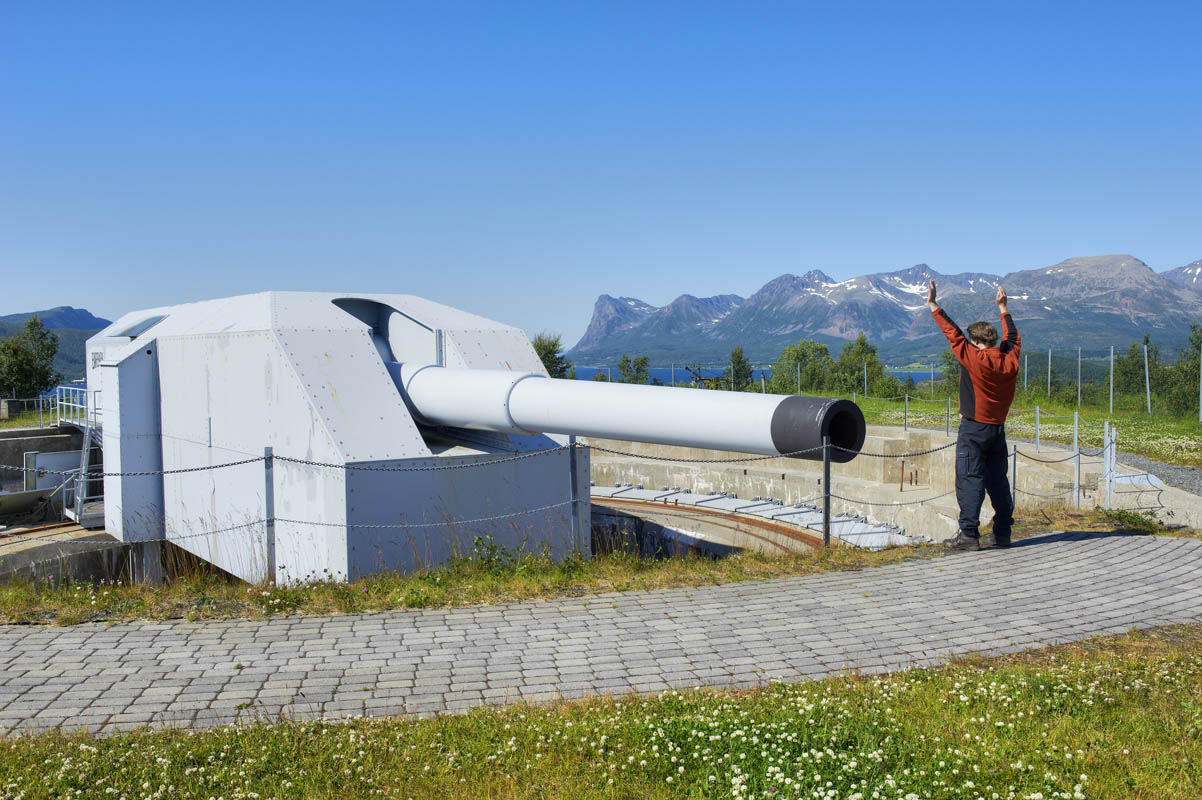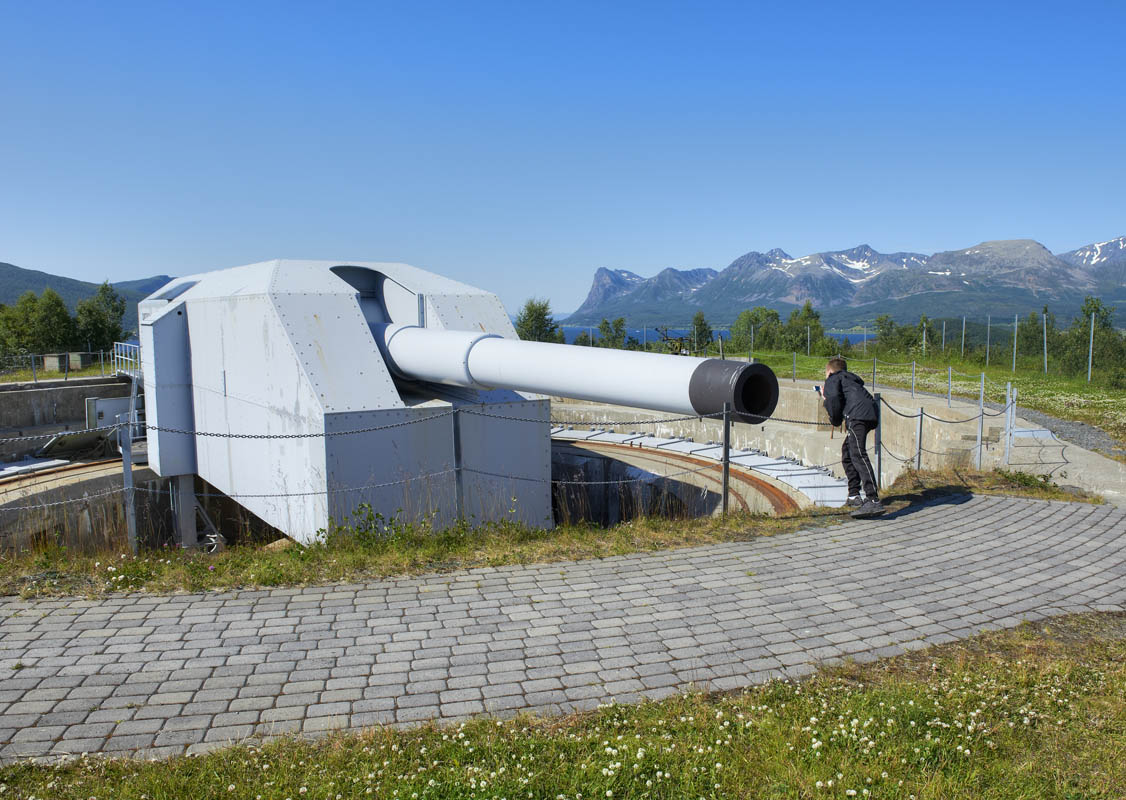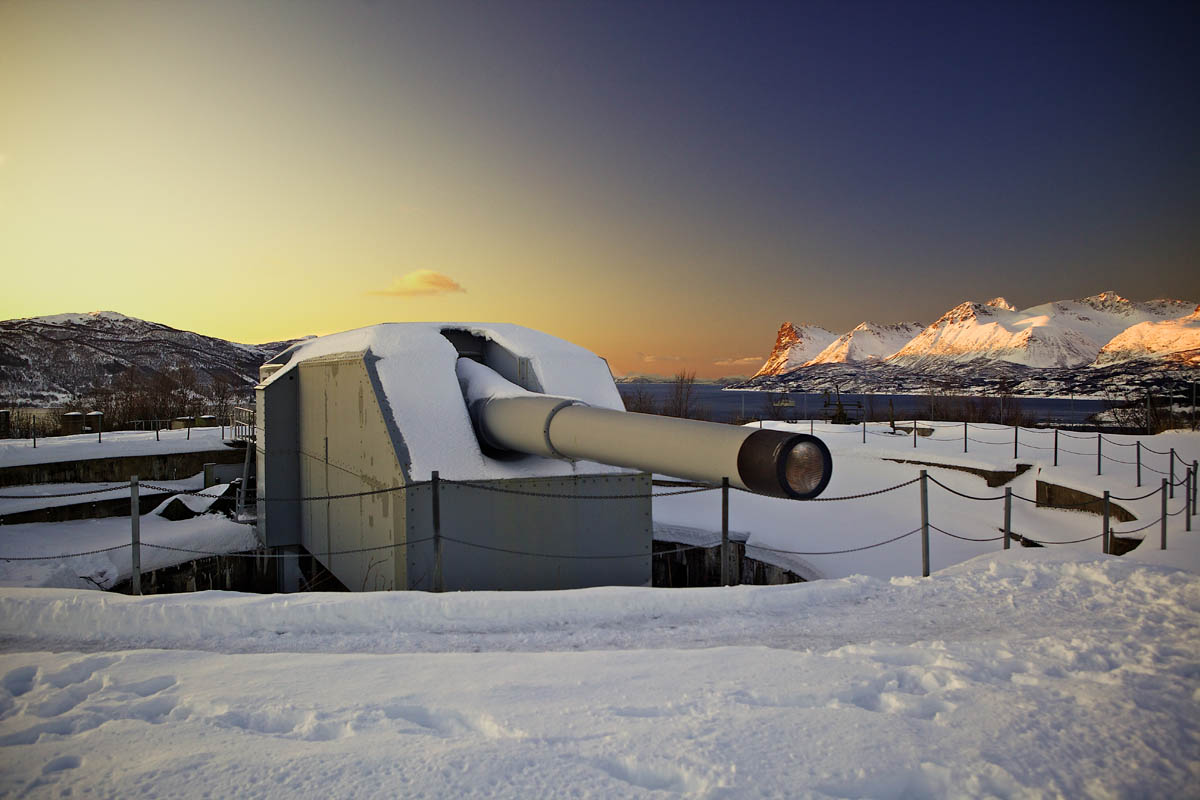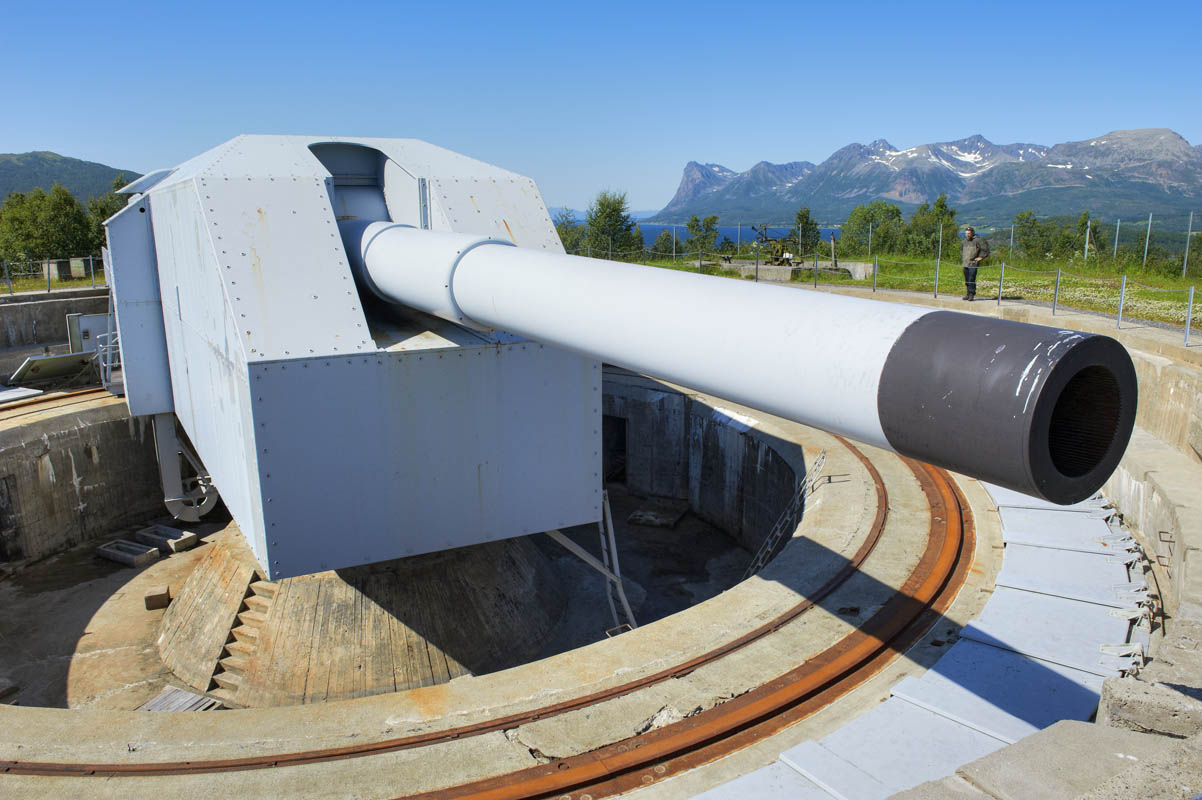The barrel diameter of 40.6 cm (16”) is big enough to contain an adult man. At Trondenes in Harstad, four of these terrifying giants from World War II have survived into the 21st century.
There it stands, on the hill north of Trondenes Church, amidst terrain covered with scrub and crumbling old concrete: a gigantic, newly painted and maintained naval gun. From this vantage point, high above Trondenes Church and the town of Harstad, there are tremendous views across the sea towards the islands of Grytøya, Andøya, Senja and Andørja – which was surely the whole point. For the Adolf Gun had a range of 56 km (35 miles), and was capable of firing at all the sailing routes visible in every direction from this spot.
The Guns were Intended for warships
The Adolf guns were naval guns originally built to be mounted on the Third Reich’s battleships «Friedrich der Große» and «Großdeutschland», two enormous vessels which were planned for completion in 1944. However, in 1941 the building plans for the ships were halted, and Hitler decided to have the guns placed on shore to form part of the Atlantic Wall coastal fortifications. Much of the heavy building work was done by Soviet Russian prisoners of war, and in 1943 the Adolf guns were installed at Trondenes fortress.
The guns had a far reaching impact
Five different types of long-range shell had been developed, weighing between 600 kg (1,322 lbs) and 1,035 kg (2,282 lbs) each. The smallest and fastest – the Adolf shell – was fired at a speed of 1,050 metres (3,445 feet) per second. With a range of 56 km (35 miles), the Adolf guns were theoretically capable of shooting whales in the feeding grounds off Andenes. They could also hit targets in the port of Narvik. The shell was in the air for over two minutes, and had a maximum trajectory ceiling of 21,800 metres (14 miles).
Several guns were located at Trondenes, now only one remains
Four Adolf guns were placed at Trondenes fortress: today only one gun is fully maintained and in working order for conservation purposes, while the other three are painted but not maintained. The Coastal Gun Battery Dietl on the island of Engeløya in Steigen was also equipped with guns of the same type, but they were cut up after the war. The big German cross-Channel guns at Sangatte near Calais have also been dismantled. The US coastal artillery set up 100 guns of the same calibre during World War II, which were all destroyed after the war. The one at Trondnenes is the only one left, but it is completely preserved.
Trondenes fortress was Strategically placed
Trondenes fortress controls the sea approach to the port of Narvik from the north. Batterie Dietl in Steigen controlled the southern approach. With a range from Trondenes, the Adolf guns were able to effectively prevent the enemies of the Third Reich from entering Narvik, and thus protect the iron ore shipments from the port which were vital to the Nazi war effort.
The fortress is a Monument to those who died
Trondenes fortress was built by Russian prisoners of war during World War II, and it was an operational fortress from 1943. Because of the horrendous conditions the POWs had to endure, over 800 died during the war. Today, Trondenes fortress is one of 14 listed coastal fortifications from the 20th century.
After the war, Norwegian forces took back control
Trondenes fortress was taken over and manned by the Norwegian Armed Forces after the war. The Adolf guns had their first test firings by Norwegian forces in 1951, and were last fired in 1957. The four guns were decommissioned in 1964. Since then, the single Adolf Gun has been maintained and looked after by veterans from the Norwegian Armed Forces, and is today in good condition and can actually be fired.
How and when to visit Trondenes fortress
Trondenes fortress is still in military use by the Norwegian Navy. The Adolf Gun is, however, open to visitors, and in summer there are regular guided tours which are unavailable during the winter months. The tour starts in the bunker beneath the gun, where there is a small museum displaying the huge shell cases and a number of technical instruments from WWII. Visitors are then taken up into the turret to see the enormous firing mechanism, followed by an inspection of the 21-meter long barrel. The bravest are naturally keen to climb in and have their photo taken inside the barrel!





